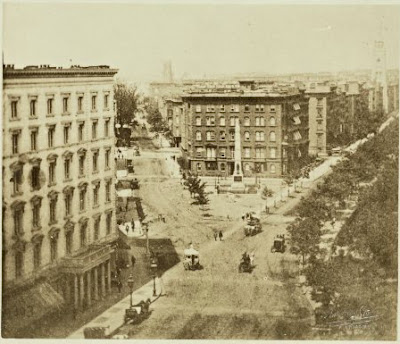
This is my first blog post that will take on something of my favorite place: New York City. Ever since I was a child, I have been fascinated with the city. I was born there in 1966, but we moved to the west coast in 1970.
The two coasts at that time could not have been more different to me. One, urban, cement, weather extremes, energy contained on a small island. The other, sprawling, an ocean sending its breezes and fogs over a rambling, hilly city. The Bay Area seemed so "new" and full of possibilities. NYC seemed to me to be full of history.
Later visits to NYC so completely evoked something in me--perhaps it was the first seeds of nostalgia, and over the years, I've loved reading about New York, learning about its history, and, of course, visiting it.
So my first entry to this chronicle encapsulates so perfectly the sense of NYC and of nostalgia. Theodore Dresier's story, "A Vanished Sea Side Resort" (1918) from The Color of a Great City (1923).
Dreiser, who hailed from the Midwest, lived in New York during his early career when he worked as a newspaper reporter. He was a true "flaneur" in the tradition of Walt Whitman, and his works chronicle the sense of place, the characters, and the particularly American-ness of place. In his first novel, Sister Carrie (1900), Dreiser gives the reader a tale of two cities: Chicago, c. 1880, and New York. The details of life in the city are so intimate and so vivid; his work serves very nearly like a cultural travelogue, documenting the look and feel of everything from the fancy restaurants to the theaters and hotels to the bread line and Bowery flophouses.
 |
| Broadway and 23rd Street |
Thus does Dresier venture with his brother on Sunday to the beach, and there he experiences a sense of time, of failure, of longing, all amidst the miraculous and lavish hotels of Coney Island, such as the famous 1877 Manhattan Beach Hotel.
These hotels, Dreiser tells us, are long gone. And thus, he recounts this "new" experience of American dreams on the beaches of Coney Island, only to remind us that all of that which he is describing has already disappeared. It's an amazing feat of writing and a provocative piece about the philosophy of longing.
It's also a great chronicle of New York and its once stately Coney Island hotels.
+NYPL.jpg)
No comments:
Post a Comment